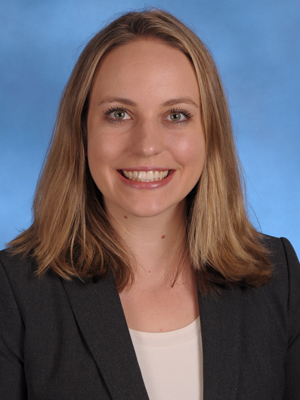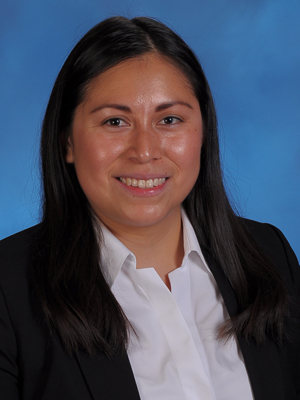Students Win Asylum for Client
With the Immigrants’ Rights Clinic, Valerie Russell and Mireya Tinoco (both ’17) helped their client, an immigrant from Russia facing persecution in her home country.
Through the Immigrant’s Rights Clinic (IRC), Boston University School of Law students Valerie Russell (’17) and Mireya Tinoco (’17) won asylum for their client, “Helen,” a Russian immigrant.
Students in the IRC represent newly arrived unaccompanied children facing deportation, refugees fleeing human rights abuses, and other vulnerable immigrants in court and administrative proceedings.
Helen came to the clinic seeking legal help in order to win asylum in the US. “Our client was from Russia, but because of her background, she was facing persecution from an early age, and difficult situations culminating in violent attacks on her life, and so what we were trying to do was protect her from that situation,” Russell says.

In order to understand Helen’s past, Russell and Tinoco spent months researching oppression and xenophobic sentiments in Russia, as well as the rise of white supremacism.
With the research, Russell and Tinoco interviewed Helen and wrote up a legal memo in which they outlined their main arguments to support Helen’s request for asylum in America.
“We were trying to say that you cannot send this person back because harm is going to come to this person,” Russell says. “Either they have already been persecuted or they fear being persecuted, and we don’t want them to go back and have these things happen to them.”
But unraveling Helen’s story, for Russell and Tinoco, proved to be difficult at first.
“Generally, since they’ve been persecuted, even talking about their story is very emotional for the client,” Russell says. “It can be difficult when interviewing them because they can be upset, but I think it gives them a sense of hope that their story has been told.”
Building a relationship with Helen was the most important and crucial step in the process. For Russell and Tinoco, the duty of telling Helen’s story and winning her asylum was what kept them motivated throughout the process.
“The interviewing can be very taxing on the client, emotionally. And you can even feel quite emotional too because you’ve developed a bond with the client, so you feel for them,” Russell says. “It can be very stressful, but once you see that you’ve done all this work to help this person and you know how much it means to them, I think it’s all worth it.”

Russell and Tinoco also worked with experts on Russia’s racial and social conditions, who helped write affidavits and testify in court to strengthen Helen’s asylum case.
“The expert can testify whether or not he believes, based on Helen’s story, that the client would be likely to be persecuted in the future,” Tinoco says.
Tinoco contacted over 25 experts in order to find one who would best represent Helen’s story, and having that expert to testify during Helen’s case in court proved to be critical.
“In immigration, you only need about a ten percent chance or probability of the client being persecuted in order to win the case—but that ten percent is difficult to overcome without a testimony from an expert,” Tinoco says.
Tinoco’s inspiration to help clients in the IRC was rooted in her own story as an immigrant. “It’s work that is very important to me,” she says. “I’m an immigrant myself. I was born in Mexico and came to America at a young age, and it’s always been a lifelong dream of mine to be able to work with immigrant communities.”
Russell’s previous work as an ESL instructor in immigrant communities in Texas inspired her to continue supporting those in need. “I spent a lot of time working with immigrants in the community and saw the struggles that they were facing,” she says. “One of the reasons I wanted to attend BU Law was because there are a lot of classes and clinics to get involved with immigrants.”
By June 2016, Helen had won asylum in the US. For Russell and Tinoco, knowing that their client is safe now has been the most rewarding part of the process.
“Just exiting the court house when she won her case, it was such an exciting moment for all of us,” Russell recalls. “Mireya and I had spent so much time working on this and we were all there and it was just this moment of relief. Everyone was in such a good mood, but it was all for the happiness of the client.”